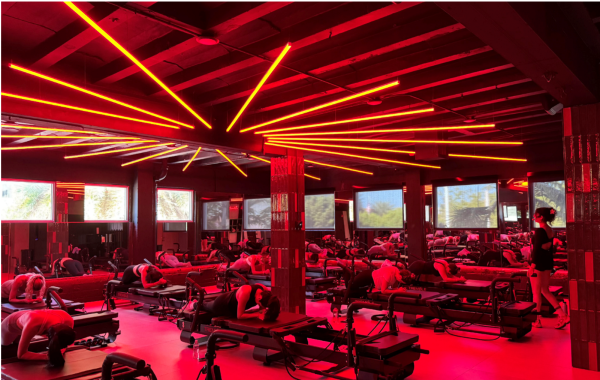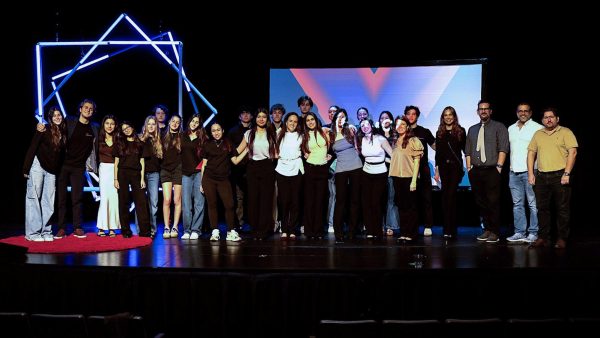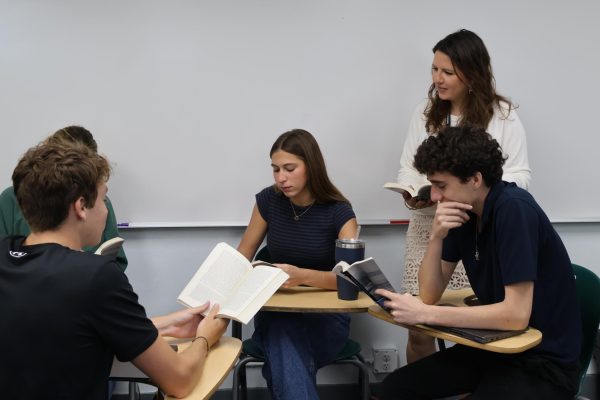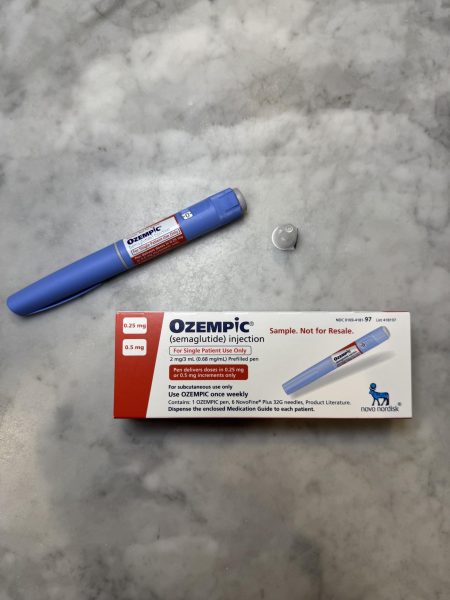Is ‘Senioritis’ a Hoax?
RE class of ’21 catches the age-old “senioritis” plague
Every year, seniors at Ransom Everglades look forward to their second semester of classes, which for many is their final semester after seven hard-fought years as an RE student. However, as students embark on their final chapter of high school, they are also very aware of a dangerous disease that sweeps the community during this time: “Senioritis.” Forget COVID-19; senioritis is the most contagious threat to RE’s twelfth-graders this year.
Or is it?
Senioritis is often characterized by a decrease in effort and motivation within students who are in the second semester of their senior year. Second semester is distinct because students’ grades are no longer a driving force in college decisions, and some students are even accepted into their college of choice by the end of December.
Senior Nicolas Stone Perez ‘21 pointed out that he has felt a lot of pressure over the last couple of years, especially the first semester this year trying to get the attention of colleges. Stone, who was accepted into MIT in December, said, “There’s definitely a difference in how much pressure I feel this semester. I’m less stressed and less anxious in general.”
Diego Virtue ‘20, a graduate from this past senior class who attends Cornell University, also felt a decrease in pressure after he was accepted in December. “After I got into college, I didn’t feel like there was much purpose outside of learning. Specifically, I wasn’t as hyper focused on grades,” he said. “I made sure to put in the effort and learn the material, but at the same time, there was a stress component that I would feel in previous semesters that wasn’t there.”
For students without the luxury of an early-decision acceptance, the “stress component” is definitely still there. “I haven’t felt less pressure because I’m still figuring out where I’m going to school,” explained Justin Wong ‘21.
Still, whether or not seniors are feeling senioritis, they agree that one thing remains constant: You can’t let it win, because teachers give out just as much work as they did first semester.
“You can’t slack off in this business. It’s easy to slack off. Don’t do it,” said Matthew Edelstein ’21, who feels that the workload is the same or a little more than it was in the fall.
“Maybe I’m investing less time in my classes, but I’m still trying hard,” said Stone. “Right now, I feel like I’m getting more work than I was first semester,” added Wong.
Dr. Brittney Ellzey, who teaches both AP Calculus 1 and AP Calculus 2, suggested that students should account for senioritis as juniors when they are filling out their course selections, and they should be prepared to work hard throughout the year if they choose to take a difficult class. “When you take a tough course, it’s going to be tough, senioritis or not,” Dr. Ellzey said.
Stone mentioned that APs or classes with a lot of juniors have not really changed the dynamic much, and added that the teachers must still give their lessons without keeping senioritis in mind. “The teacher isn’t going to just sympathize with you just because you’re about to graduate,” Stone said.
Dean of the Senior Class and AP U.S Government teacher Mr. Greg Cooper echoed Stone’s remarks when discussing his approach to teaching seniors. “I don’t treat students any differently. I’m still going to teach my classes to the best of my ability,” Mr. Cooper said.
Dr. Ellzey said that she normally tries to make the second semester less difficult for seniors, and tries to empathize with her students when they are stressed out in the final semester. “I try to be flexible with my seniors if they tell me they’re overwhelmed or overworked,” she said.
This year, however, the new schedule prevented her from lightening the load. “I always kind of hope it gets better the second semester. Last year I was able to plan for that a little better. But this year, with the new schedule and the time crunch, I think it’s been a little harder to give seniors a break second semester the way I would like to,” she explained.
Wong agreed that if the workload felt unusually high, it was likely because of the adjusted schedule. “The common trend in classes is the sense that we don’t have as much class time, so there’s more work outside of class,” Wong said.
Do senior grades drop in the second semester? Yes, according to Mr. Cooper—and they can sometimes reach dangerously low levels. “Over the years, I have definitely noticed grades slipping in the spring. I have seen more lower grades in the spring,” he said. Mr. Cooper considered “lower grades” as anything below a C. He even went as far as to say, “I’ve known students over many years get warning letters from colleges or get placed on probation from their colleges. That stuff is real, and many students don’t believe us.”
Mr. Cooper directly attributed the drop in grades to the lack of pressure in the second semester, and tied it back to the college process. “I think the pressure from college is off, so a lot of people ask themselves, if their grades slip, if it’s really going to matter,” he said.
Despite the decline in senior grades across the overall class, however, Mr. Cooper noted that many individuals still succeed in their last semester. Wong and Stone both said their grades have remained the same and even improved a little bit. Virtue said, “Ironically, I’ve gotten my best grades in second semester.”
Regardless of how much academic work seniors face, they still carve out time to enjoy their social life with college on the horizon. Edelstein talked about there being a “shift in priorities” for him in the last few months of the year. “First semester, I was really focused on getting into college. Now, I want to do what makes me happy, and that is not doing homework on a Friday night.”
Edelstein decided that he must keep his academic performance up, but he also wants to use the last semester to cherish the memories he has created and the bonds he has formed over the last seven years at Ransom Everglades. He said, “I’m focusing a lot more on spending time with friends and enjoying myself throughout the school day. This is going to be the last time I see my friends like this in maybe forever, so I’m just trying to make the most of it.”
Mr. Cooper referenced spending time with friends as a healthy benefit to the stress-reduced second semester. He said there were two main factors to being less motivated, but there was a difference between the people who want to put some time off to spend with their friends and the people who stop working because it does not matter to them. To him, the latter is more dangerous because it “breeds a mindset that you only work hard when it matters for something you’re going to get at the end of it.”
Is senioritis a hoax? Mr. Cooper does not even like the term “senioritis” because it “makes it sound like it’s a natural disease as opposed to a conscious choice.” But he does believe it is truly a problem for a handful of second semester seniors.
“It’s the myth versus reality. It’s a real thing that concerns me for a small number of people. But I think for most people it’s a healthy, relaxing time.”

Daniel Fisher '21 is a staff writer and copy editor for The Catalyst.







